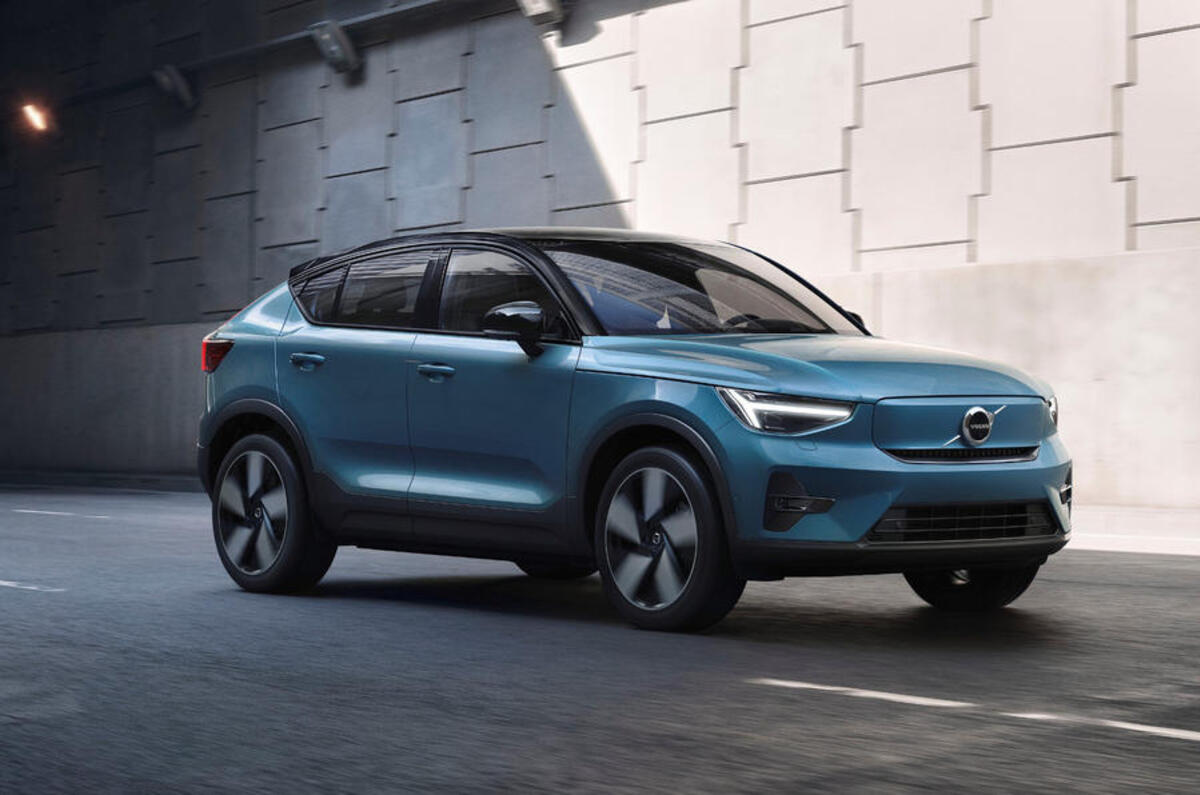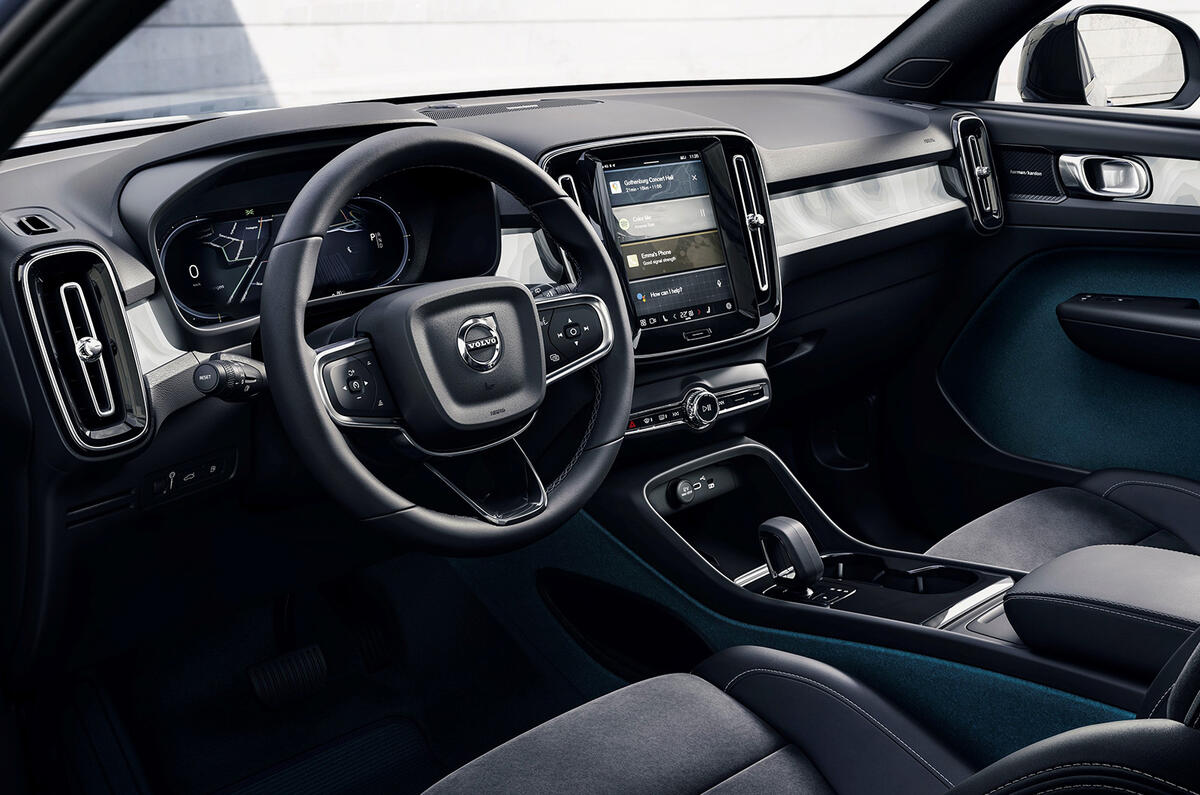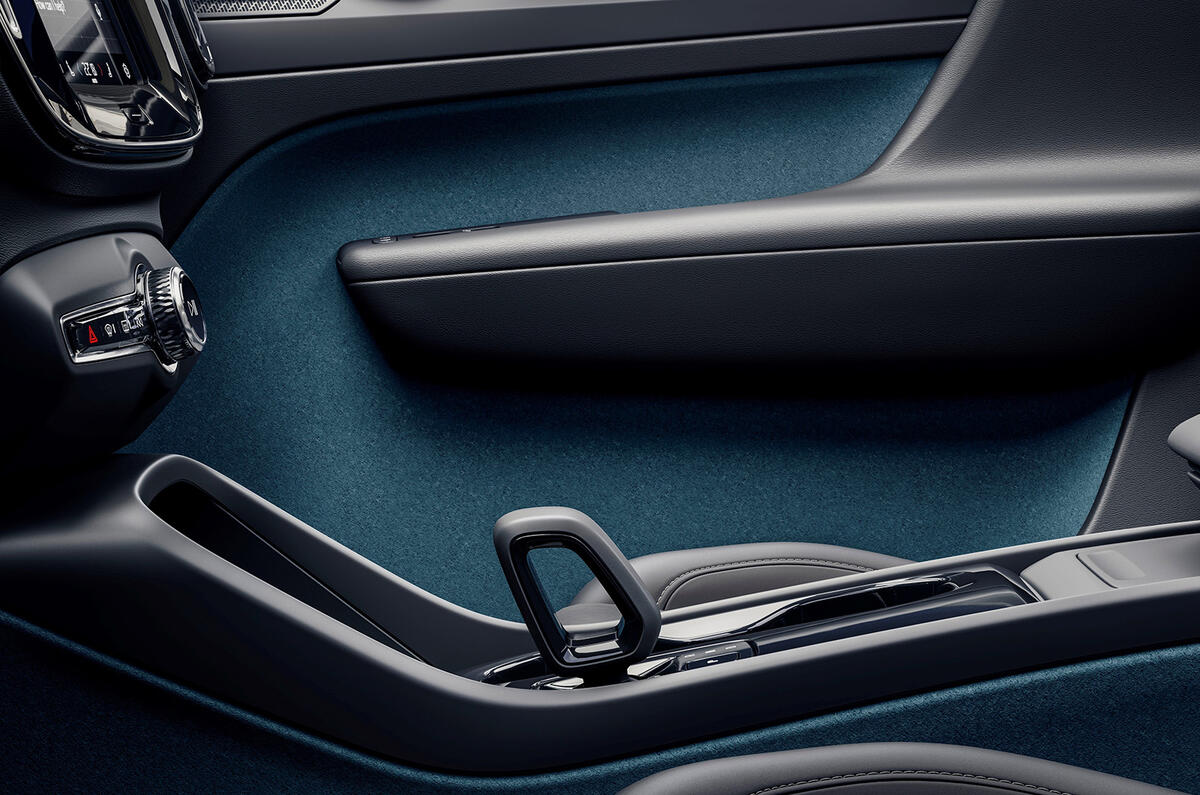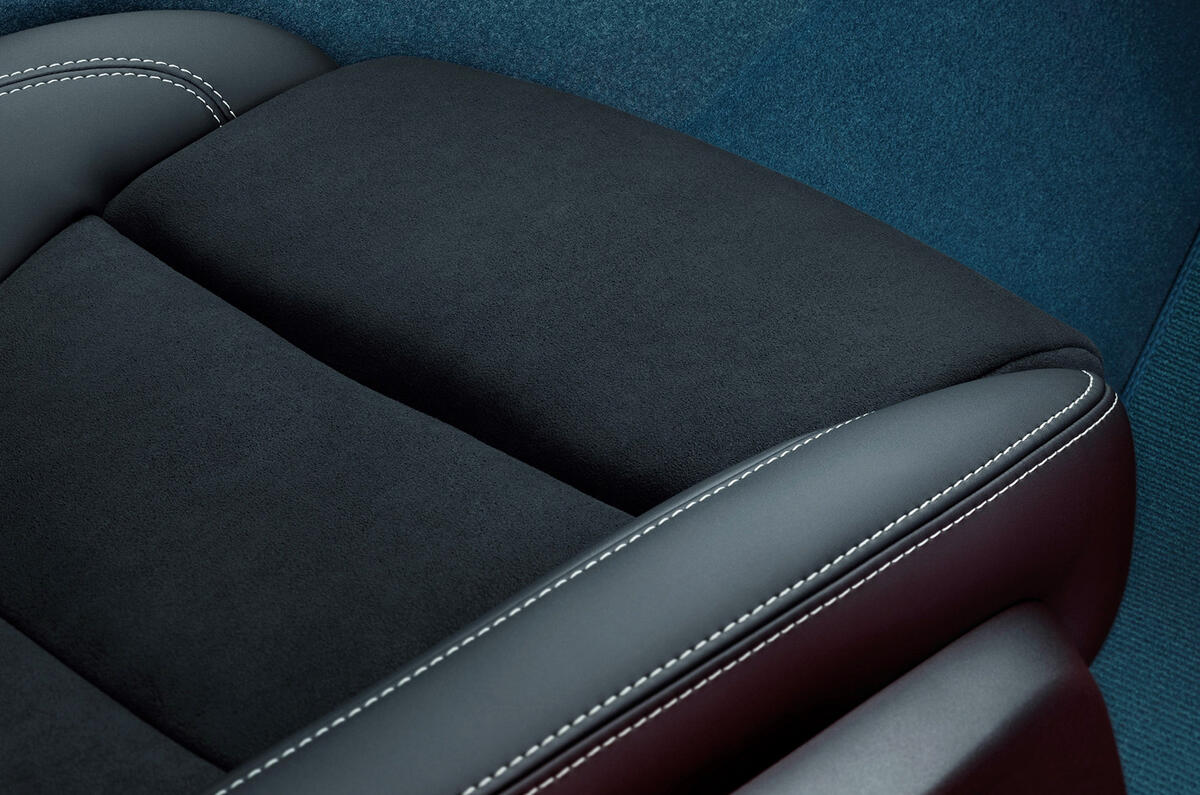All new fully electric Volvo models will be completely leather-free from 2025, with many interior options set to be replaced by more sustainable materials.
The change comes as the manufacturer looks to reduce animal harm and its contribution to global emissions and will begin with the C40 Recharge.
Volvo will aim for 25% of all materials on new cars to be recycled and bio-based, in addition to the goal of ensuring all immediate suppliers use 100% renewable energy by 2025.
“Being a progressive car maker means we need to address all areas of sustainability, not just CO2 emissions,” said Stuart Templar, Volvo’s director of global sustainability.
“Responsible sourcing is an important part of that work, including respect for animal welfare. Going leather-free inside our pure-electric cars is a good next step towards addressing this issue.”
Volvo will offer bio-based and recycled alternatives for leather interior options, including its Nordico material, made from plastic bottles, ‘bio-attributed material’ and corks reused from the wine industry.
Wool-blend options will still be available and sourced responsibly, with full traceability in line with animal-welfare standards.
Volvo will also aim to reduce the use of residual products from livestock production used in the production of plastics, rubber, lubricants and adhesives, either as part of the material or as a process chemical in the material’s production or treatment.
“Finding products and materials that support animal welfare will be challenging, but that's no reason to avoid this important issue,” said Templar.
“This is a journey worth taking. Having a truly progressive and sustainable mindset means we need to ask ourselves difficult questions and actively try to find answers.
"By aiming to actively replace these materials as much as possible, Volvo Cars takes a strong and ethical position to do what it can to help stop animal harm, by contributing to a reduced demand for these materials containing animal products."
READ MORE
Inside the industry: Has anyone done the decade better than Volvo?











Join the debate
Add your comment
A step in the right direction. My neighbour has a Tesla which is leather free, cannot tell the difference and if anything it is much softer with no cracks on the sides which happens with leather over time.
All ‘genuine’ leather cracks over time.
As my niece so often likes to remind me my continental has directly resulted in 8 dead bulls and she hates sitting on ‘dead skin’.
I have nothing against leather but if you can use a superior material why not. The people complaining are the type who say we should have a horse and cart instead of a car and no to the internet.
Progression is only a good thing and I for one applaud it.
It is the 21st century not the 1900s.
It's probably semantics, but the car did not result in 8 Dead Bulls - they arrived because of the Meat industry.
A step in the right direction. My neighbour has a Tesla which is leather free, cannot tell the difference and if anything it is much softer with no cracks on the sides which happens with leather over time.